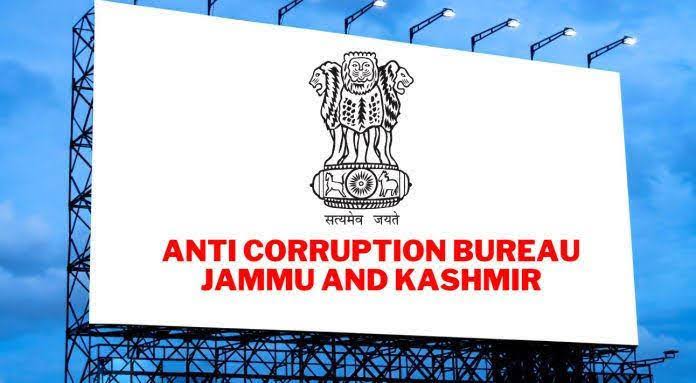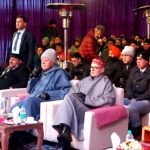- ACB investigation reveals 109 candidates scored below the cutoff but were marked higher, with some shown to have 90 marks despite scoring as low as 11, 17, and 24.
- M/s LMES IT LLP, the second-lowest bidder with no proven experience, was awarded the exam contract over M/s UMC Technology Pvt. Ltd., the lowest bidder.
- Several cases of family ties, including five brothers and F&ES officials’ relatives, influencing selections.
The Jammu and Kashmir Anti-Corruption Bureau (ACB) has registered a case over alleged irregularities in the 2020 Fireman/Fireman Driver recruitment process in the Fire and Emergency Services (F&ES) Department.
An inquiry committee report has raised concerns over paper leakage and other discrepancies, leading to a criminal investigation. Recruitment for these positions has faced controversy since 2013, with previous attempts terminated due to irregularities.
According to officials, The ACB probe has revealed serious flaws, including the awarding of the exam contract to M/s LMES IT LLP, the second-lowest bidder, despite the lowest bidder offering a better price. Additionally, 109 candidates were fraudulently marked higher than their actual scores, with some shown to have secured 90 marks despite scoring as low as 11. Multiple instances of nepotism and favoritism have surfaced, including the selection of five brothers from one family. Protests have erupted, and criminal charges are being filed against the involved officials. The investigation is ongoing.
According to the details of the investigation, the recruitment process for Fireman/Fireman Driver posts in J&K has been mired in controversies dating back to 2013 when the Departmental Recruitment Board (DRB) first advertised these posts. Following discrepancies in the selection process, the government terminated the entire recruitment process in 2016. The recruitment process was restarted in 2018, adhering to the previous advertisement issued in 2013, and was ordered to be conducted through a Transparent Recruitment Process (TRP) system.
The issue gained attention when the government appointed the Hyderabad-based agency M/s Timing Technologies India Pvt. Ltd to conduct the examination. However, allegations of mass copying during the written examination led to the cancellation of the tests in August 2019. The government then issued a fresh e-NIT (e-tender) for the recruitment process in 2020.
Irregularities and Favoritism
The latest revelations point to serious irregularities, with the ACB’s probe uncovering that the Directorate of F&ES issued a fresh e-NIT in January 2020 for conducting the written examination. Six TRP agencies participated, but the contract was awarded to M/s LMES IT LLP, a Jammu-based firm, which was ranked as the second-lowest bidder (L-2). The L-1 bidder, M/s UMC Technology Pvt. Ltd., Kolkata, had quoted a price of Rs. 107.50 per candidate, but the contract was controversially awarded to M/s LMES IT LLP at Rs. 179 per candidate.
What makes the situation even more problematic is that M/s LMES IT LLP, which had no proven experience in conducting similar recruitment tests, was awarded the contract despite the clear guidelines mandating that negotiations should only be held with the L-1 bidder. The selection of this ineligible agency raised questions about favoritism and a lack of transparency. Investigations revealed that M/s LMES IT LLP had ties to Sh. Maharaj Krishan Wali, who was previously associated with M/s Timing Technologies India Pvt. Ltd. In another alarming turn, the firm was also found to be a newly formed entity, operating since only 2017, casting doubts over the process’s integrity.
Manipulation and Discrepancies in the Selection List
The investigation further revealed disturbing discrepancies in the selection list. Among the 690 selected candidates, it was found that 109 had secured marks lower than the cutoff but were listed as having higher marks in the final selection list. In some cases, candidates who had actually scored as low as 11, 17, and 24 marks were shown to have secured 90 marks in the final selection list. The case also revealed other irregularities, including the selection of five brothers from the same family in Budgam and multiple instances of relatives of F&ES officials being selected, suggesting a widespread manipulation of the recruitment process.
The Departmental Recruitment Board (DRB) and members of the Technical Committee, along with officials of the F&ES Department, have been accused of conspiring with M/s LMES IT LLP to manipulate the process for personal and extraneous gains. This conspiracy led to the illegal awarding of the TRP contract to the L-2 bidder and the subsequent manipulation of the selection list, benefiting a select few while sidelining deserving candidates.
Public Outcry and Protests
The irregularities have not gone unnoticed by the public. Aspirants, who had hoped to secure employment through this recruitment process, have been protesting against the alleged corruption and manipulation. Many candidates have expressed their anger over what they describe as an “infamous” recruitment process, which they claim was marred by favoritism, nepotism, and blatant irregularities. Protests were held across the region, with candidates demanding a fair investigation and the cancellation of the recruitment process.
The ACB’s registration of a case under the Prevention of Corruption Act and the Indian Penal Code highlights the gravity of the situation. The accused, including members of the DRB, F&ES Department officials, and the beneficiaries of the manipulated recruitment process, now face charges under sections 7, 13(1)(a) & 13(2) of the PC Act, along with sections 120-B, 420, 467, 468, and 471 of the IPC. These charges carry severe penalties, including imprisonment, and reflect the seriousness with which the authorities are addressing the issue.
Investigation and Future Course of Action
The ACB has initiated a comprehensive investigation into the matter, with the objective of uncovering all those involved in the irregularities and holding them accountable. The investigation is focused on the role played by officials, the agency that conducted the exam, and the individuals who benefited from the manipulated selection list.
In the wake of these revelations, questions remain about the future of the recruitment process and the credibility of such exercises. The public is calling for transparency, accountability, and an overhaul of the recruitment system to ensure that such incidents do not occur in the future. As the investigation progresses, the ACB has assured the public that it will take strict action against the culprits, aiming to restore faith in the recruitment system and ensure justice for all candidates involved.
The case has drawn attention to the larger issue of corruption and manipulation in public recruitment processes, urging for reforms and a more transparent, accountable system.








